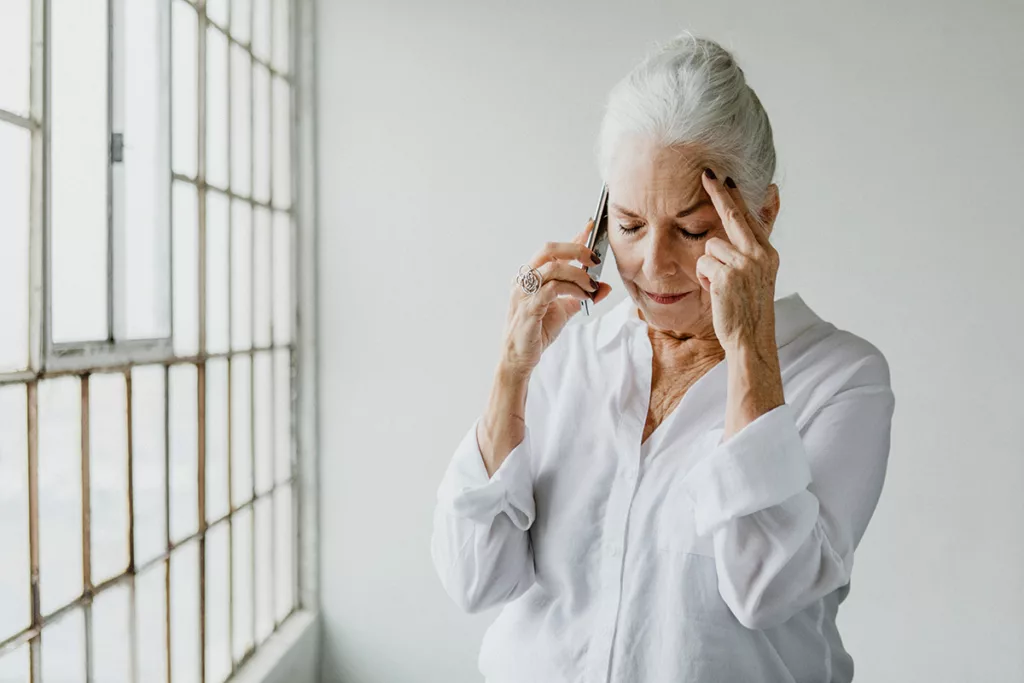Helping a Loved One
Hearing helps us connect to the people around us. When someone we love experiences hearing loss, it can have a ripple effect on their relationships and how they engage with the world. Below, we discuss how to talk to a loved one about hearing loss and why it’s so important.
Importance of Speaking Up About Hearing Loss
Encouraging a loved one to seek help for their hearing loss is not always easy. But that shouldn’t stop you from trying to help them get the care you know they need and deserve. If left untreated, age-related hearing loss (presbycusis) can lead to social isolation, depression, and even hinder a person’s ability to care for themselves.
By speaking up about hearing loss, you can help your loved one stay connected with the people and activities they love. Your support and understanding play a crucial role in helping them take that first step toward better hearing and a higher quality of life.
How Hearing Loss Affects Our Relationships
Hearing loss affects more than just the individual. Friends and loved ones often feel the ripple effects in ways that can strain even the closest bonds. Age-related hearing loss can change how people communicate, behave, and interact with the people around them. These changes can create challenges that deeply impact these relationships, sometimes in unexpected ways. Hearing loss can commonly cause:

Miscommunication
Hearing loss increases opportunities for miscommunication and misunderstandings. When you can’t hear what others are saying, this can foster feelings of frustration, neglect, and discouragement in our friends and loved ones.

Worry
Hearing loss puts us at a disadvantage when it comes to situational awareness. When we can’t hear instructions, warnings, or danger, we are at greater risk of getting hurt. As a result, our loved ones can become increasingly worried and anxious about our safety.

Strained Relationships
For many, hearing loss can be a source of embarrassment or shame. Many with hearing loss may decline social situations and conversations to hide their impairment. Avoiding these situations can put a significant strain on our relationships with others.
How to Bring Up Hearing Loss with a Loved One
Navigating sensitive topics like a loved one’s health can be tricky and intimidating. Conversations about hearing loss are no different. At Audibel, we understand the importance of starting these discussions with care and confidence. Below, we outline a few key points to keep in mind when you decide to bring up hearing loss with a loved one.

Be Prepared
Research hearing loss ahead of time and be ready to answer their questions.

Be Mindful
Hearing loss can be an emotional conversation, so be aware of emotions: both yours and theirs.

Be Supportive
Offer your time and energy by accompanying them to a hearing consultation.

Be Compassionate
Gently remind them of their hearing loss when the opportunity presents itself.

Be Encouraging
Remind them that they have nothing to lose and everything to gain by treating their hearing loss.

Be Considerate
Choose the right time and place free from distractions and excessive noise.
Finally, and most importantly, remember that your ultimate priority is their health and happiness. Bringing up hearing loss with a loved one should stem from a place of genuine support and care. By approaching the discussion with compassion and composure, you can help your loved one feel empowered to take the steps needed to improve their hearing health.

How to Talk to Someone with Hearing Loss
As we age, it’s natural for our hearing to decline. However, for people with untreated hearing loss, processing conversations requires extra effort, as they work to fill in gaps and missed words. This added strain can make communication challenging and even exhausting. To help bridge the gap, here are some simple tips you can use when speaking with someone with hearing loss to communicate more effectively:
Do
Don’t
Next Steps
Support is the most important part of helping someone navigate the challenges of hearing loss. Even if they’re not ready to schedule an appointment with a hearing specialist right away, your encouragement and understanding can make all the difference. Continue to offer support, use the tips shared above, and gently encourage them to seek professional help when they are ready.
Above all else, always remember, you’re not alone in this process – our dedicated team of hearing care specialists is here to support you every step of the way. If you believe you or a loved one may be experiencing symptoms of hearing loss, try our free online hearing test today or visit an Audibel-certified hearing aid center in your area for additional resources and assistance.